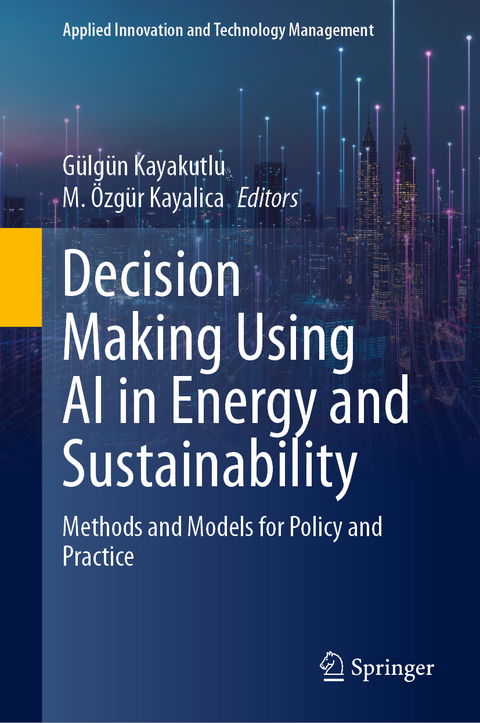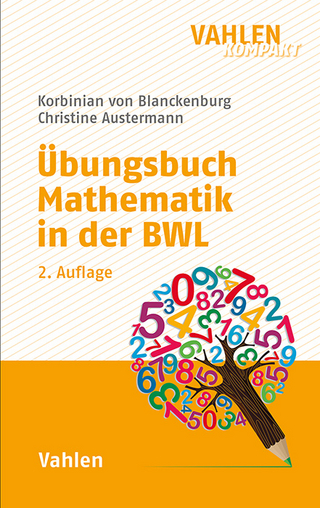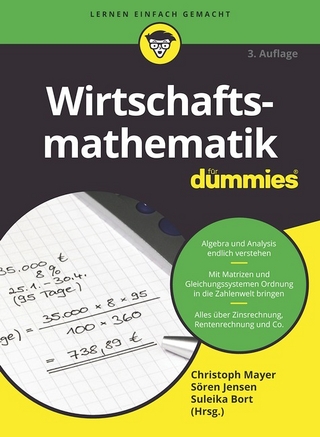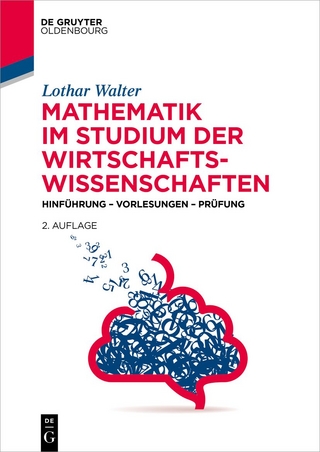
Decision Making Using AI in Energy and Sustainability
Springer International Publishing (Verlag)
978-3-031-38386-1 (ISBN)
Artificial intelligence (AI) has a huge impact on science and technology, including energy, where access to resources has been a source of geopolitical conflicts. AI can predict the demand and supply of renewable energy, optimize efficiency in energy systems, and improve the management of natural energy resources, among other things. This book explores the use of AI tools for improving the management of energy systems and providing sustainability with smart cities, smart facilities, smart buildings, smart transportation, and smart houses. Featuring research from International Federation for Information Processing's (IFIP) "AI in Energy and Sustainability" working group, this book provides new models and algorithms for AI applications in energy and sustainability fields. Any short-term, mid-term and long-term forecasting, optimization models, trend foresights and prescriptions based on scenarios are studied in the energy world and the smart systems for sustainability. The contents of this book are valuable for energy researchers, academics, scholars, practitioners and policy makers.
lt;p>Gulgun Kayakutlu is Professor in the Department of Energy Planning and Management at the Energy Institute of Istanbul Technical University (Turkiye). Before joining the University, she was the founder and General Manager of Sybase Turkiye, where she managed several real-time transaction projects in the private sector and many B2B projects in the government sector. She wrote the book Intelligence in Energy (Elsevier, 2017) and co-edited Energy Management-Collective and Computational Intelligence with Theory and Applications (Springer, 2018). Dr. Kayakutlu has published more than fifty articles in SCI and SSCI reviewed journals on energy optimization and intelligence as well as coordinating and participating EU projects.
Professor M. Özgür Kayalica is currently a senior faculty member in the Faculty of Management, ITU (Istanbul Technical University) and appointed in the Energy Institute, ITU. He is also the Director of TEGAM (Technological and Economic Development Research Center), ITU. He received his Ph.D. in Economics from the University of Essex, UK. Kayalica's research focuses particularly on the microeconomics of environmental economics and energy economics with specific interest to sustainability. Kayalica is the co-editor of International Environmental Efficiency: A Critical Analysis (Routledge, 2017) and Artificial Intelligence for Knowledge Management (Springer, 2021). He also published numerous articles in SCI/SSCI indexed journals. Kayalica directed and participated in many national and international projects (EU Projects).
1. Climate change - Can AI help understanding and more effective facing of various interrelated impacts?- 2. A methodology for linking the Energy-related Policies of the European Green Deal to the 17 SDGs using Machine Learning.- 3. Single-valued neutrosophic CRITIC-based ARAS method for the assessment of sustainable circular supplier selection.- 4. Linguistic-Based MCDM Approach for Climate Change Risk Evaluation Methodology.- 5. Creating a Net-Zero Carbon Emission Scenario Using OSeMOSYS for the Power Sector of Turkey.- 6. Prediction of Downward Surface Solar Radiation Using Particle Swarm Optimization and Neural Networks.- 7. Electricity Demand Prediction: Case of Turkey.- 8. The Impact Of The Wind Energy Power Forecast Accuracy On The Price Of Electricity.- 9. The Power of Combination Models in Energy Demand Forecasting.- 10. Data-driven state classification for energy modeling of machine tools using power signals and part-program information.- 11. Energy Efficiency Optimization Application in Food Production using IIOT based Machine Learning.- 12. Hype: a data-driven tool for smart city profile (SCP) discrimination.- 13. An Integrated Hesitant Fuzzy Linguistic MCDM Methods to Assess Smart City Solutions.- 14. Presence of Renewable Resources in a Smart City for Supplying Clean and Sustainable Energy.- 15. Syrian Household Energy Consumption Behavior Analysis In Turkey: Bayesian Belief Network.- 16. Informativeness in Twitter Textual Contents for Farmer-centric Pest Monitoring.- 17. A Multi-Criteria Decision-Making Model for Technology Selection in Renewable-Based Residential Microgrids.- 18. Energy Management in Power-Split Hybrid Electric Vehicles Using Fuzzy Logic Controller.
| Erscheinungsdatum | 18.10.2023 |
|---|---|
| Reihe/Serie | Applied Innovation and Technology Management |
| Zusatzinfo | XI, 312 p. 83 illus., 77 illus. in color. |
| Verlagsort | Cham |
| Sprache | englisch |
| Maße | 155 x 235 mm |
| Gewicht | 643 g |
| Themenwelt | Mathematik / Informatik ► Mathematik ► Finanz- / Wirtschaftsmathematik |
| Wirtschaft ► Allgemeines / Lexika | |
| Schlagworte | Climate change risk evaluation • Electricity Demand Prediction • European Green Deal • Power-Split Hybrid Electric Vehicles • Residential microgrid Management • Smart cities and clean energy • Smart city profile • solar radiation • Sustainable circular supplier selection • The UN SDGs • Wind Energy Power Forecast |
| ISBN-10 | 3-031-38386-9 / 3031383869 |
| ISBN-13 | 978-3-031-38386-1 / 9783031383861 |
| Zustand | Neuware |
| Informationen gemäß Produktsicherheitsverordnung (GPSR) | |
| Haben Sie eine Frage zum Produkt? |
aus dem Bereich


